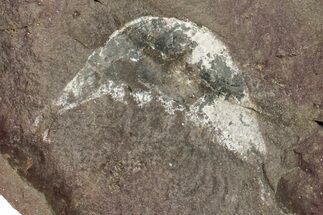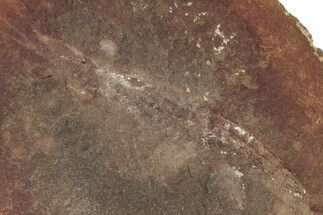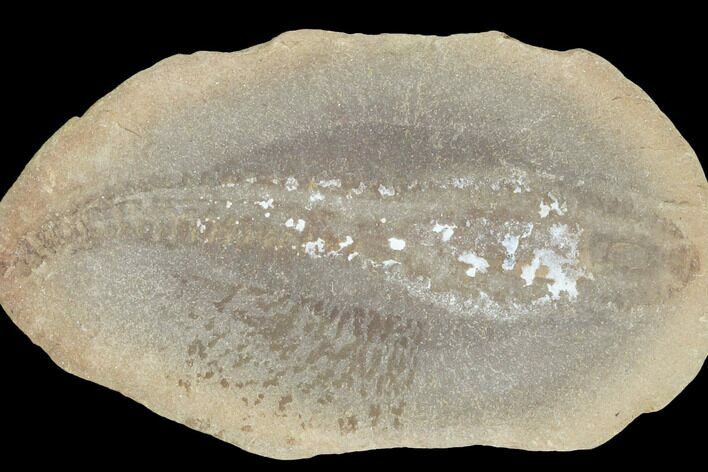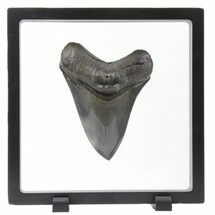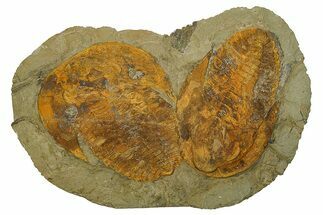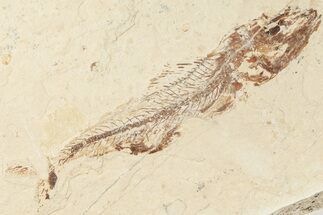This Specimen has been sold.
1.3" Fossil Tummy Tooth Worm (Didontogaster) Pos/Neg - Illinois
This is a 1.3", fossil worm (Didontogaster), preserved inside an ironstone nodule from the Carbondale Formation near Essex, Illinois. Both the positive (convex) and the negative (concave) sides are included.
Didontogaster cordylina worms are considered the most commonly found polychaete (marine annelid worm). They earn their species name cordylina from their club-like appearance. This swollen section of the worm from which they gained their name, housed the mouth which contained two conical jaws within its probiscus. It's segmented body and fine setae (body bristles) suggests that this worm was a burrower. It's likely it was a predator as well, for ostracodes and plant material have been found preserved in its gut.
Didontogaster cordylina worms are considered the most commonly found polychaete (marine annelid worm). They earn their species name cordylina from their club-like appearance. This swollen section of the worm from which they gained their name, housed the mouth which contained two conical jaws within its probiscus. It's segmented body and fine setae (body bristles) suggests that this worm was a burrower. It's likely it was a predator as well, for ostracodes and plant material have been found preserved in its gut.
SPECIES
Didontogaster cordylina
LOCATION
Essex, Illinois
FORMATION
Carbondale Formation
SIZE
1.3" worm, 1.4 x .8" nodule
CATEGORY
ITEM
#120950
We guarantee the authenticity of all of our specimens.
 Reviews
Reviews

